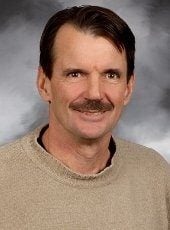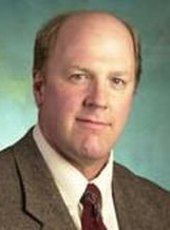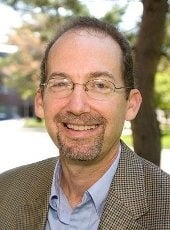Online Education for Working Professionals
Focus on technologies used in digital and analog signal analyses.

Applications range from medical imaging to autonomous vehicle technology.
Learn data manipulation techniques to improve signal or image fidelity. Understand
the theory of probability and stochastic processes. Detect and estimate signals. Use
computer programming in digital image processing. Autonomous navigation through sensors
relies on process control and computer vision.
3 courses in 3 semesters.
| Length |
3 courses in 2-3 semesters |
| Effort |
3 hours per credit per week |
| Each course |
3 credits |
| Total credits |
9 |
| Course type |
Online or on-campus |
| Modality |
Watch class recordings on demand |
| Cost |
Based on credits and course type |
| Already enrolled? |
Speak with your advisor |
Curriculum
Progress quickly with a compact curriculum. Work with the program advisor to select
courses that fit your interests and pre-requisite skills.
Required Courses
Take a 3 credit required course.
EE 5500 - Probability and Stochastic Processes
Theory of probability, random variables, and stochastic processes, with applications in electrical and computer engineering. Probability measure and probability spaces. Random variables, distributions, expectations. Random vectors and sequences. Stochastic processes, including Gaussian and Poisson processes. Stochastic processes in linear systems. Markov chains and related topics.
- Credits:
3.0
- Lec-Rec-Lab: (3-0-0)
- Semesters Offered:
Fall
- Restrictions:
Must be enrolled in one of the following Major(s): Electrical Engineering, Electrical Engineering, Electrical & Computer Engineer;
May not be enrolled in one of the following Class(es): Freshman, Sophomore, Junior
Electives
Take 6 credits of elective courses.
EE 5300 - Mathematical and Computational Methods in Engineering
Overview of problem-solving tools and techniques in engineering, considered from both the analytical and computational point of view. Systems of linear equations, eigenvalue and eigenvector computations, boundary value and initial value problems, Fourier analysis, large-scale systems, optimization. Mathematical modeling and computar programming.
- Credits:
3.0
- Lec-Rec-Lab: (3-0-0)
- Semesters Offered:
Fall, Spring
- Restrictions:
Must be enrolled in one of the following Major(s): Electrical & Computer Engineer, Electrical Engineering, Computer Engineering;
May not be enrolled in one of the following Class(es): Freshman, Sophomore, Junior
EE 5521 - Detection & Estimation Theory
Detecting and estimating signals in the presence of noise. Optimal receiver design. Applications in communications, signal processing, and radar.
- Credits:
3.0
- Lec-Rec-Lab: (3-0-0)
- Semesters Offered:
Fall, Spring
- Restrictions:
Must be enrolled in one of the following Level(s): Graduate;
Must be enrolled in one of the following Major(s): Electrical & Computer Engineer, Electrical Engineering, Computer Engineering
- Pre-Requisite(s): EE 5500
EE 5522 - Digital Image Processing
Fundamentals of image processing are covered including image representation, geometric transformations, binary image processing, compression, space and frequency domain processing. Computer programming in MATLAB and Python required.
- Credits:
3.0
- Lec-Rec-Lab: (3-0-0)
- Semesters Offered:
Fall, Spring
- Restrictions:
Must be enrolled in one of the following Level(s): Graduate;
Must be enrolled in one of the following Major(s): Electrical & Computer Engineer, Electrical Engineering, Computer Engineering
EE 5532 - Sensing and Processing for Robotics
Sensing modes, signal and image processing for industrial robotic automation processes. Emphasis placed on widely used sensors, including cameras and 3-D sensors for process control and computer vision for autonomous navigation.
- Credits:
3.0
- Lec-Rec-Lab: (3-0-0)
- Semesters Offered:
Spring
- Restrictions:
Must be enrolled in one of the following Major(s): Electrical & Computer Engineer, Electrical Engineering, Computer Engineering;
May not be enrolled in one of the following Class(es): Freshman, Sophomore, Junior
- Pre-Requisite(s): EE 5522
Typical Schedule
The minimum completion time is one semester. Here are typical schedules.
Sample Plan 1
| Fall |
|
EE 5300
EE 5500
EE 5522
|
Sample Plan 2
| Fall |
Spring |
|
EE 5500
EE 5522
|
EE 5532
|
Application Process and Admissions Requirements
Applications are reviewed on an individual basis using a holistic approach. Fill out
our free graduate application online to apply to any of our programs. Official transcripts and scores are not required
for the initial application, although you will need to upload them later.
Graduate School Admissions Process
Applying to the Graduate School is free (no application fees) and fast (no official transcripts, test scores, or letters needed to start). The application
process involves three easy steps.
See Admissions Steps
Graduate School Requirements
To be considered for admission to the Graduate School as a degree- or certificate-seeking student, you need to:
- have a bachelor's degree or its equivalent from an accredited institution, and
- be prepared for advanced study in your chosen field, as demonstrated by your previous
degree and your scholastic record.
See additional application requirements, including required materials:
Program Specific Requirements
Program Specific
- Admitted applicants typically have an undergraduate GPA of 3.0 or better on a 4.0
scale
- GMAT/GRE: Not required
- Preferred major: Electrical Engineering or closely related technical field - Students
with degrees in other fields may be required to take preparatory courses
International Students
- TOEFL: Recommended Score of 79 iBT
- IELTS: Recommended Overall Band Score of 6.5
Admissions Decisions
Made on a rolling basis.
Prospective Students
- Prospective students and non-degree seeking students interested in obtaining a graduate
certificate must apply to the certificate program using the online application.
- Accelerated certificate options exist for current Michigan Tech undergraduate students in good standing and have
achieved at least junior-level standing or recent bachelor’s graduates of Michigan
Tech (less than two years).
- The number of credits earned prior to admission that can be counted are restricted.
Current Graduate Students
- Current Michigan Tech graduate students who are in a degree program do not need to formally apply. Current students must still submit the appropriate degree schedule in order to complete the certificate.
International Student Requirements
International Students must apply and be accepted into a degree-granting program in order to earn a graduate certificate. A non-refundable $10 processing fee per application is required.
See International Applicants
Interested in taking a single, online course? Enroll as a non-degree seeking student.
Upon completion of the Certificate the student should be able to:
- Demonstrate proper utilization of signal and image processing techniques.
Students receiving this certificate will have demonstrated the ability to solve open-ended
problems in statistical signal and/or image processing from fundamental principles,
and be able to apply their solution to real world problems.
Michigan Tech was founded in 1885.
The University is accredited by the Higher Learning Commission and widely respected
by fast-paced industries, including automotive development, infrastructure, manufacturing,
and aerospace. Michigan Tech graduates deliver on rapid innovation and front-line
research, leaning into any challenge with confidence.
The College of Engineering fosters excellence in education and research.
We set out as the Michigan Mining School in 1885 to train mining engineers to better
operate copper mines. Today, more than 60 percent of Michigan Tech students are enrolled
in our 17 undergraduate and 29 graduate engineering programs across nine departments.
Our students and curriculum embrace the spirit of hard work and fortitude our founders
once had. Our online graduate courses are the same, robust classes taken by our doctorate
and masters candidates, taught directly by highly regarded faculty, with outstanding
support from staff. We invite working professionals to join these courses, bring their
own experience and challenges as part of the discussion. Leverage the national reputation
of Michigan Tech to advance your career in tech leadership.
Online Certified Instructors
Meet the online certified instructors. Students have the flexibility to review class
recordings later.

Teaching Statement
Dr. Burl teaches courses in control systems, digital and non-linear control, and probability and stochastic processes.
View Profile

Teaching Statement
Dr. Roggemann teaches on sensing and processing in robotics, digital image processing, Fourier optics, and algorithms and optimizations.
View Profile

Teaching Statement
Dr. Schulz teaches courses in detection and estimation theory, math and computational methods in engineering, and electric circuits.
View Profile



